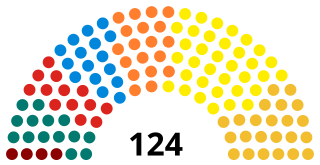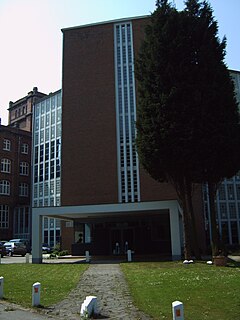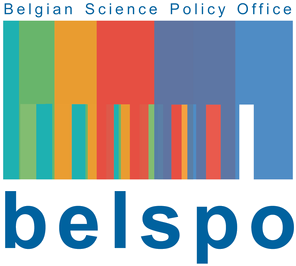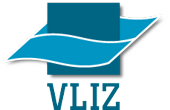External links
- VRWI (in Dutch)
| | This article about a scientific organization is a stub. You can help Wikipedia by expanding it. |
The Flemish Council for Science and Innovation (Dutch : Vlaamse Raad voor Wetenschap en Innovatie, VRWI), previously known as the Flemish Council for Science Policy (Dutch : Vlaamse Raad voor Wetenschapsbeleid, VRWB) is the advisory body of the Flemish Government and the Flemish Parliament for science and technology policy. The VRWB provides advice concerning science and technology policy on its own initiative or on request. It provides recommendations, conducts investigations and provides its opinion on science and technology for Flanders. Dirk Boogmans is the Chairman of the Flemish Council for Science and Innovation. In 2016, it was abolished and reformed as the Flemish Advisory Council for Innovation and Entrepreneurialism (Dutch: Vlaamse Adviesraad voor Innoveren en Ondernemen).

The Flemish Parliament constitutes the legislative power in Flanders for matters which fall within the competence of Flanders, both as a geographic region and as a cultural community of Belgium.
The Royal Academies for Science and the Arts of Belgium (RASAB) is an association which promotes and organises science and the arts in Belgium by coordinating the national and international activities of its constituent academies such as the National Scientific Committees and the representation of Belgium in international scientific organisations.

The Flemish Government is the executive branch of the Flemish Community and the Flemish Region of Belgium. It consists of a government cabinet, headed by the Minister-President and accountable to the Flemish Parliament, and the public administration divided into 13 policy areas, each with an executive department and multiple agencies.

The Flemish Diamond is the Flemish reference to a network of four metropolitan areas in Belgium, three of which are in the central provinces of Flanders, together with the Brussels Capital Region. It consists of four agglomerations which form the four corners of an abstract diamond shape: Brussels, Ghent, Antwerp and Leuven. Over five million people live in this area, with a population density of about 600 per square kilometre in 2002.
Flemish Sign Language is a deaf sign language of Belgium. VGT and French Belgian Sign Language are very closely related, but now generally recognized as distinct languages. VGT is estimated to include around 6,000 sign-language users.
VIB is a research institute located in Flanders, Belgium. It was founded by the Flemish government in 1995, and became a full-fledged institute on 1 January 1996. The main objective of VIB is to strengthen the excellence of Flemish life sciences research and to turn the results into new economic growth. VIB spends almost 80% of its budget on research activities, while almost 12% is spent on technology transfer activities and stimulating the creation of new businesses, in addition VIB spends approximately 2% on socio-economic activities.
The Flemish institute for technological research, is an independent Flemish research organisation that provides scientific advice and technological innovations that facilitate the transition to a sustainable society, and this in the areas of energy, chemistry, materials, health and land use.

The National Fund for Scientific Research (NFSR) was once a government institution in Belgium for supporting scientific research until it was split into two separate organizations:

The Royal Belgian Academy Council of Applied Sciences (BACAS) is a Belgian council, which consists of the Flemish Academy Committee for Science and Technology (CAWET) and Walloon Comité de l'Académie pour les Applications de la Science (CAPAS) committees of the Flemish and French Academies of Science in Belgium. BACAS has ten members from the academy and ten from industry. The council studies the impact of technological development on society and provides advice for the Belgian government and leaders of industry.
The Society and Technology Institute was from 2000 until 2013 a Flemish institute. The institute was associated with the Flemish Parliament, for which it provided advice on complex issues involving society and technology.
Science and technology in Flanders, being the Flemish Community and more specifically the northern region of Belgium (Europe), is well developed with the presence of several universities and research institutes. These are strongly spread over all Flemish cities, from Kortrijk and Bruges in the Western side, over Ghent as a major university center alongside Antwerp, Brussels and Leuven to Hasselt and Diepenbeek in the Eastern side.

The Evangelical Theological Faculty is a private university of Theology in Leuven, Flanders, Belgium. The ETF offers four degree programs: a Dutch-taught Bachelor of Arts in Theology and Religious Studies program, an English-taught Master of Arts in Theology and Religious Studies program, a Dutch-taught Teacher's degree program, and an English PhD program. Moreover, the ETF also offers a Bachelor's and Master's part-time program named ETF Open University.

The Belgian Federal Science Policy Office, known by the acronym BELSPO, is the federal government body responsible for research policy in Belgium. It designs and implements research programmes and networks and manages the participation of Belgium in European and international organisations. BELSPO supervises Belgian federal scientific organisations.
Science and technology in Brussels, the central region of Belgium (Europe), is well developed with the presence of several universities and research institutes.

The Flanders Marine Institute provides a focal point for marine scientific research in Flanders, northern Belgium.

The Royal Flemish Academy of Belgium for Science and the Arts is one of the an independent learned society of science and arts of the Flemish Community in Belgium. It is one of Belgium's numerous academies and traces its origin to 1772 when the Imperial and Royal Academy of Brussels was founded by empress Maria Theresia.

The Royal Academy for Dutch Language and Literature is an institution focused on the study and promotion of the Dutch language in Flanders. It is the Dutch-speaking counterpart of the Académie royale de langue et de littérature françaises de Belgique and one of Belgium's numerous academies.
The Royal Academy of Science, Letters and Fine Arts of Belgium is the independent learned society of science and arts of the French Community of Belgium. One of Belgium's numerous academies, it is the French-speaking counterpart of the Royal Flemish Academy of Belgium for Science and the Arts. In 2001 both academies founded a joint association for the purpose of promoting science and arts on an international level: The Royal Academies for Science and the Arts of Belgium (RASAB). All three institutions are located in the same building, the Academy Palace in Brussels.

René Tavernier was a Belgian geologist and stratigrapher. He was a professor at the State University of Ghent, a corresponding member of the Royal Flemish Academy of Belgium for Science and the Arts, and one of the founders of the Belgian Society for Soil Science.

The Research Foundation – Flanders is a Belgian public research council, based in Brussels. The Flemish research council aims to sponsor ground-breaking research and innovation. Much of this work involves supporting researchers and undertakings in association with the universities and institutes of Flanders, including Ghent University, University of Leuven, University of Antwerp and Free University of Brussels, among others.